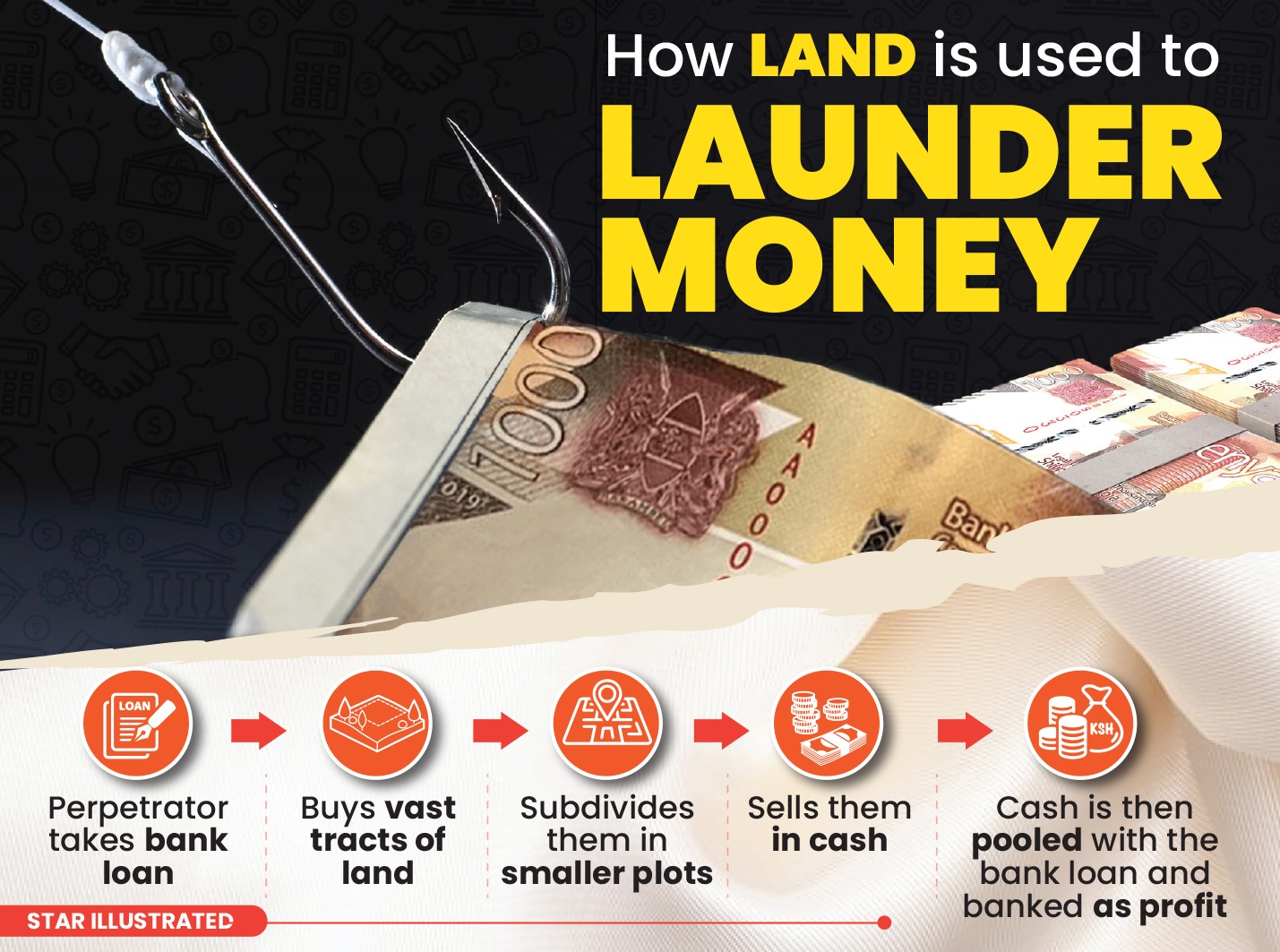

Njiru, located about 21 kilometres from the Nairobi Central Business District is a melting pot for the various Kenyan communities Part of the larger Eastlands, it has a vibrant community which unfortunately faces an uncertain future as bulldozers threaten their homes.
A recent court ruling invalidating property ownership has left thousands of residents fearing forced evictions.
This case exposes Kenya’s pervasive land fraud problem.
Corruption and systemic failures create opportunities for criminals while ensnaring unsuspecting families and opportunistic investors.
One affected resident, sitting in his well-manicured garden, reflects on the looming loss of his Sh5 million investment.
On two plots he bought in 2012, he built a three-bedroom home and a rental building, which now houses 20 tenants.
At the time, the land seemed like a bargain, purchased for Sh500,000 per plot. Yet the sale came with a catch: the sellers demanded cash payments to avoid leaving a paper trail.
“The sellers kept rushing us to develop the land. If you didn’t act fast, they would sell it again to someone else with cash,” he recalls.
The land’s dubious history soon caught up with him. After a 20-year legal battle, the Environment and Land Court ruled in 2023 that his and other residents’ occupancy were invalid. Judge Simon Okong’o ordered them to vacate by December 31 or face eviction.
The ruling revealed that the land had been initially acquired and subdivided by proxies and private companies, who then sold it to unsuspecting buyers like him.
Land fraud has plagued Nairobi’s growing suburbs, with cases like Njiru’s emblematic of broader systemic failures. A former land broker in the area admitted that some buyers are innocent, while others knowingly participate in laundering illicit funds.
“I know of a man who paid Sh7 million in cash, bought a large piece of land, subdivided it into 32 plots, and sold them all within no time,” he said.
Buyers like him exploit weak oversight in Kenya’s land sector to clean dirty money while unsuspecting victims pay the price.
Another high-profile case highlights the severity of the issue. Livingstone Tanui, a former payroll manager at Elgeyo Marakwet County, was accused of embezzling millions of shillings, which he used to acquire several parcels of land.
Court documents revealed that Tanui manipulated payroll systems to transfer Sh33 million to himself and his wife, Violah Butiah.
The funds were deposited into multiple bank accounts and later withdrawn to purchase land, often in cash. High Court Judge Esther Maina ruled that the properties were acquired with embezzled funds.
“The purpose of registering them in his father’s name was to conceal and disguise their source, hence a means of laundering illicitly acquired funds,” she stated in her November ruling.
The judgment ordered Tanui to forfeit 16 parcels of land, a fleet of vehicles, and millions in several bank accounts to the government.
Faith Alubbe, CEO of the Kenya Land Alliance, notes that these schemes thrive in a system rife with loopholes.
Fraudsters often secure bank loans, purchase vast tracts of land in cash, subdivide them, and sell smaller plots through proxies or shell companies.
“Buyers are asked to pay in cash, which is then pooled with the bank loan and banked as ‘profits’ from the land sale,” Alubbe explains.
“The goal isn’t profit but integrating dirty money into the formal financial system. It’s a double-edged sword—innocent buyers are victimised, while others knowingly invest in these schemes.”
In September, the government printer alerted the public about the theft of 307 title deeds, underscoring the brazenness of corruption cartels infiltrating state agencies to execute land fraud.
“It is notified for the general information of the public that the title deeds listed herein are reported stolen,” read a public notice dated September 26.
“The government will not take any liability arising from unauthorised transactions on the title deeds. By this notice, they are deemed cancelled or of no effect.”
The Ministry of Land attributed the theft to fraudsters infiltrating the government press and stealing blank title deeds for forgery purposes.
“The papers only become title deeds after being handed over to the Ministry, filled with ownership details, and stamped by the Registrar,” the Ministry clarified.
Experts relate the alleged loss of the title deeds to a well-choreographed plan to use the land to clean dirty money.
The project received support from
the Thomson Reuters Foundation
as part of its global work aiming to
strengthen free, fair and informed
societies. Any financial assistance
or support provided to the journalist has no editorial influence.
The content of this article belongs
solely to the author and is not
endorsed by or associated with
the Thomson Reuters Foundation,
Thomson Reuters, Reuters, nor any
other affiliates.


